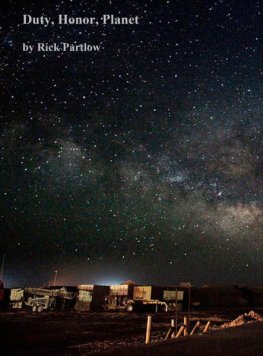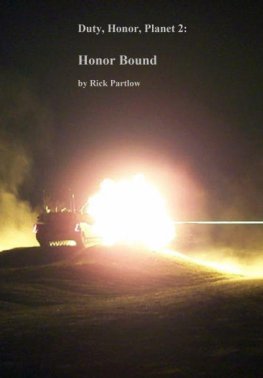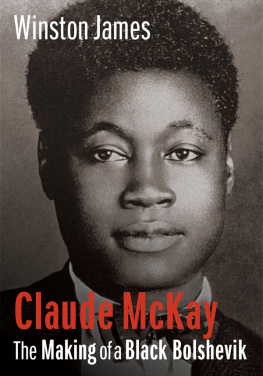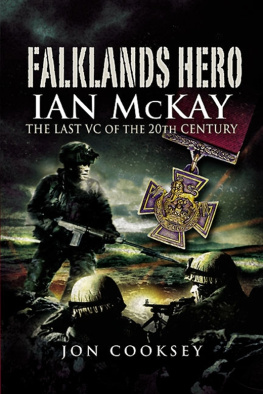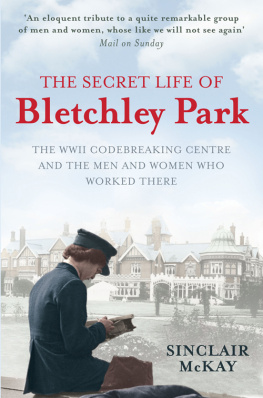DUTY, HONOR, PLANET
by Rick Partlow
Pioneering amounts to finding new and more horrible ways to die.
John W. Campbell
The fabric of reality warped itself around the utilitarian shape of the colony ship, tortured into submission by an arcane twisting of the laws of physics. Traversing the dark between the stars at an effective rate of hundreds of times the speed of light, the Republic Colonial Authority Ship Conestoga rode waves of spacetime into the Epsilon Eridani system. Ten thousand emigrants were crammed into her hold, suspended in the chemical stasis of g-sleep, not to be woken till they reached their new home at the Demeter colony.
There was no crew. An artificial intelligence controlled the ship from port to port, straying from its mission only under certain, preprogrammed circumstances. One of these was a distress call, and as the ship passed through the cometary halo of the star system it received just such a signal.
Had there been a human captain, he or she might have felt suspicious that the signal was a tight-beam broadcast from the heart of the systems outer asteroid belt, the remnants of a failed planet. But the ships computer did as it was told and diverted the spacecraft from its course, answering the distress call with an automated reply. The sensors found the source of the call, a ship rotating slowly end for end, its infrared signature dangerously cold, its orbit destined to intersect a kilometer-wide asteroid in mere hours.
The bulbous drive pods glowed brightly with Cherenkov radiation as the Conestoga decelerated, braking to match orbits with the derelict craft, then they fell dark, and the shimmer of unreality that had surrounded the starship faded into the harsh lines of the mundane. The Conestogas computer churned away in furious thought, developing a strategy to halt the tumbling of the derelict. A human crew might have paused in that strategy to wonder at the unfamiliar lines of the ship, or the anachronistic fission-powered drives it mounted, but the Conestogas computer was encumbered with no such qualms.
So the artificial intelligence was taken aback when maneuvering rockets lit up on the derelicts nose, halting its tumble. And the computer was completely surprised when a missile shot out of the side of the strange ship, slamming into the colony ships drive pods and blowing hundreds of millions of dollars worth of gravimetic field generators into scrap metal with a spherical fireball.
But by the time a weapons-grade laser shot out to destroy the Conestogas communications antenna, the computer knew exactly what was happening. It watched through the exterior sensors, powerless to act as boarding pods rocketed toward its hull, until the occupants of those pods found the control center and deactivated it.
Inside the hold, ten thousand men, women and children slumbered peacefully, blissfully ignorant of the fact they would never wake up.
* * *
Jason was pressed into his acceleration couch as the orbital transfer vehicle departed the monolithic mass that was the star cruiser Bradley. He watched the ugly, blocky ship recede on the viewscreen, taking with it his old life. His new life loomed ahead in the form of a huge, spinning can hanging suspended in the fifth LaGrangian Point between the Earth and the Moon. He sighed. It could have been worse.
It had surely seemed worse three months ago. His career had lain dead on the bloody ground of an unimportant agricultural colony twenty light years from Earth, almost unnoticed beside the corpses of half his platoon. If someone had told him then that he would be offered a promotion to First Lieutenant and a position in Fleet Intelligence
The imposing mass of Republic Spacefleet Headquarters swelled in the flatscreen display on the front wall of the shuttles passenger compartment, revealing the impressive array of defensive weapons and a three-meter deep layer of nickel-iron shielding smelted off an imported asteroid. Constructed just after the establishment of the Republic military, it had grown steadily through the following years, both in size and in mission, until it was an almost incessant buzz of activity. Jasons orbital transfer vehicle was but one of the ships constantly docking and embarking from the stations twin docking ports at its rotational hubs, passing almost unnoticed among the huge star cruisers and insystem patrol ships and the smaller cislunar cutters and orbital shuttles.
As his shuttle docked with one of the flexible collars that extended from the station, Jason found himself staring at the viewscreen facing the opposite way, back into the depths of space. Everything seemed so clean and antiseptic out there, so different from the dirty, mud-caked streets of Inferno.
Visions came unbidden of houses and shops built from local wood and paper by the Asian immigrants in New Saigon, burned to the ground in a single night of unbridled savagery. Whatever noble cause the revolutionaries had espoused, it had been lost in the orgy of violence that had followed the capture of the Colonial Guard armory. The local constabulary had been helpless once the insurgents had seized the military weapons stored in the armory, and the only help available to stop them was the single Reaction Force platoon on the Bradley, passing through the system to refuel at its solar antimatter factory.
There was the yielding feel of mud beneath his feet and the acrid smell of smoke that the helmet filters couldnt quite scrub out. Shouted commands echoed with tinny distortion over the radio, punctuated by the stuttering reports of assault rifles and ultimately, the screams of the wounded and dying.
He had hardly known them, had only been in command of the platoon for a few months, but now each face was indelibly burned into his memory. Eight of them had died in the fierce battle for the armory, and another half-dozen had been wounded. Thirty-five members of the local constabulary had died as well, along with over two hundred members of the Asian Revolutionary Resistance and forty-three civilian workers.
Afterward, he had walked among them in a daze, watching the medics go to work on the wounded of both sides, slipping now and then in the endless pools of blood that collected in the corridors. He had been on the verge of slipping into catatonia, when he came upon a Colonial Guard Captain that was trying to prevent one of the Fleet medics from giving treatment to one of the wounded civilians.
Most Guard officers were the sons of politicians from underdeveloped countries, given their commissions as payoff to their parents for the support they gave the Republic government in their local assemblies, and this fellow was no exception to the rule. Loud and brash, he had nonetheless stayed in the rear during the fighting, then had come strutting in with his clean uniform and his waxed mustache to give orders.
Jason broke the mans nose and knocked out three of his teeth before the local cops had been able to separate them. When the Bradley had reached the Fleet base at Eden for R&R, Jason had spent a solid week drinking himself into oblivion, certain that his career was over and once the tapes from the battle were reviewed by his superiors, he would spend the next ten years in a military detention center.
Instead, he had sobered up to find orders waiting: he was being immediately transferred to the Spacefleet Intelligence Division, promoted to First Lieutenant and assigned to Colonel Kenneth Mellanbys personal staff.
Maybe, he reflected with a dark smile, I should have shot the bastard. Then they would have made me a general.
Flashing green lights and an automated message shooed McKay and the half-dozen other passengers out of the shuttle and through the airlock, directly into a lift car. Pausing at the cars control panel, McKay glanced at his watchhe had less than twenty minutes before he was scheduled to meet with the Colonel. Not nearly enough time to find his quarters, stow his bags and grab a quick shower. He touched the indicator panel for the Intelligence offices, then slumped aside in resignation. It was going to be one of those days.

